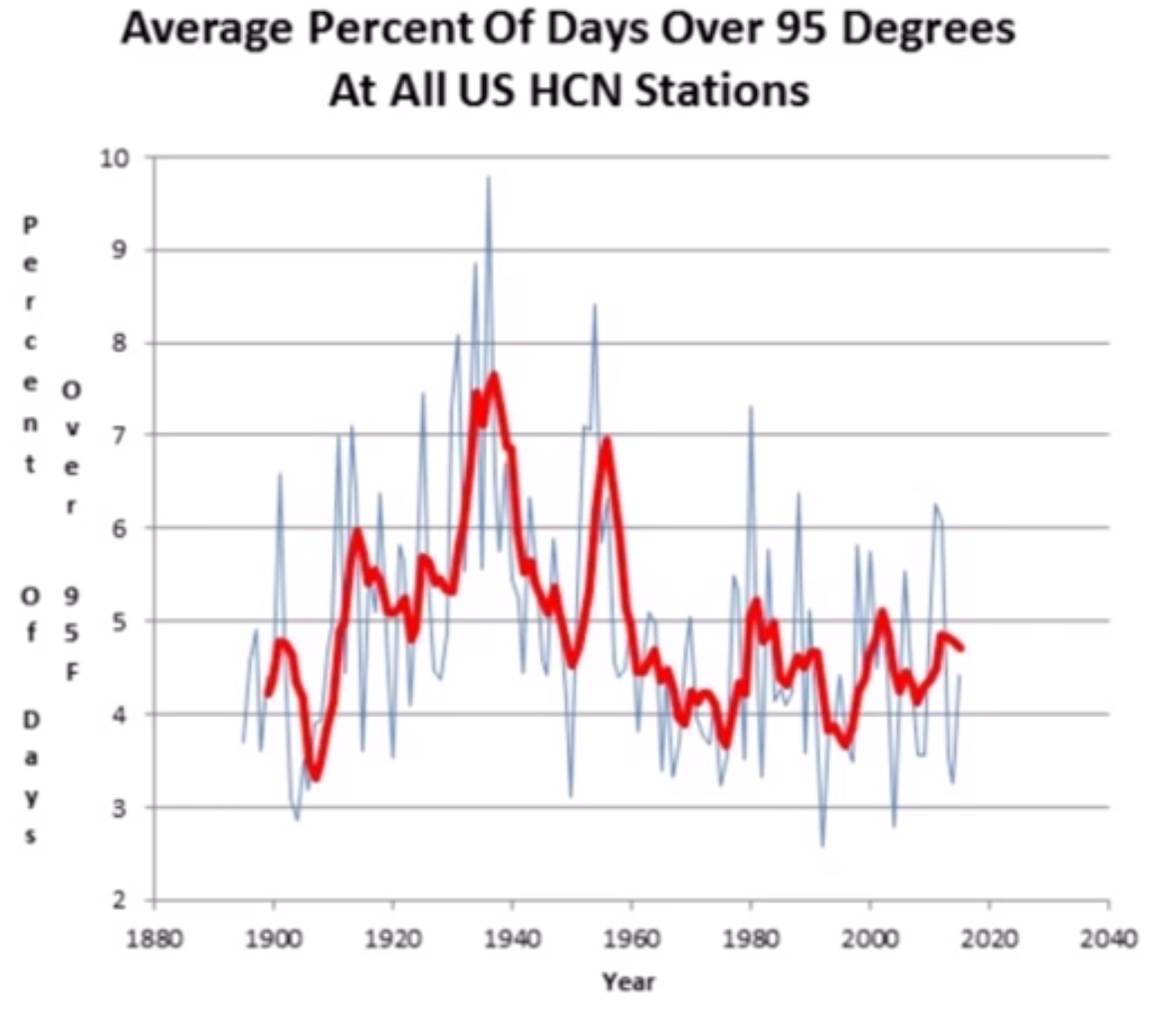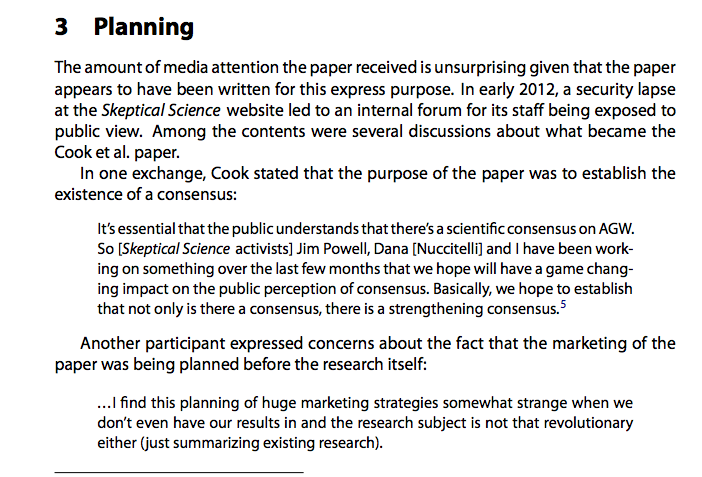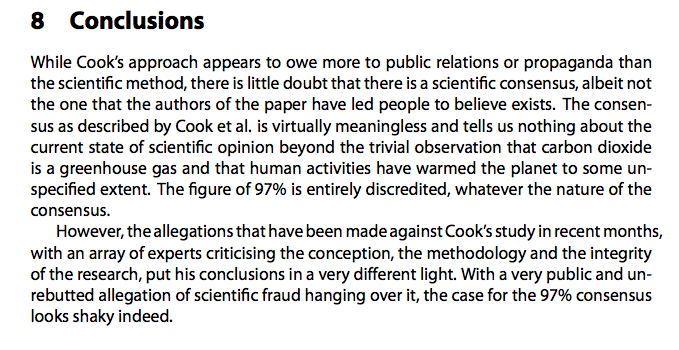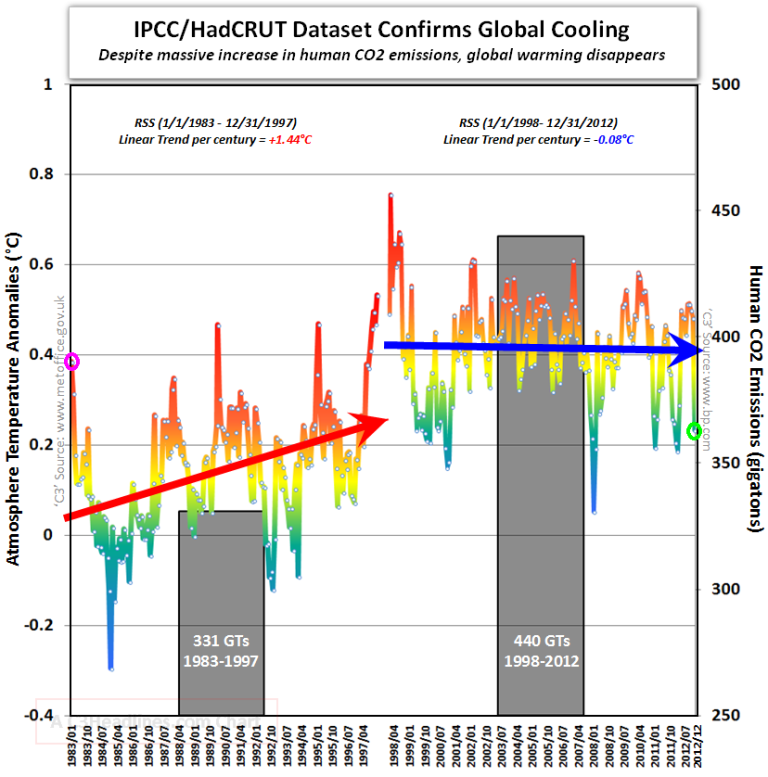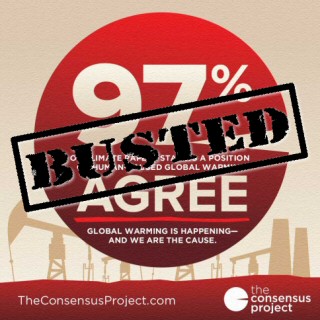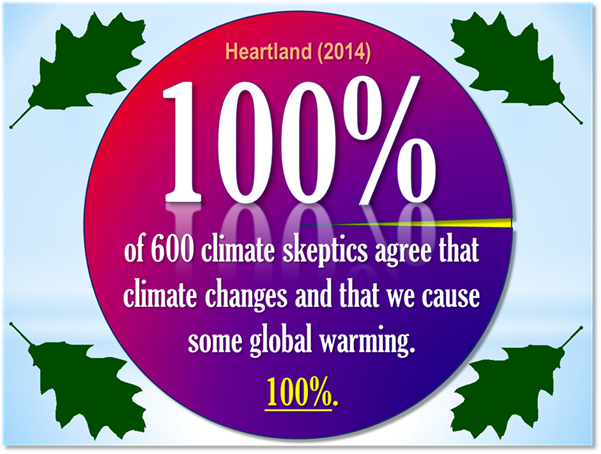It looks like you're using an Ad Blocker.
Please white-list or disable AboveTopSecret.com in your ad-blocking tool.
Thank you.
Some features of ATS will be disabled while you continue to use an ad-blocker.
share:
a reply to: D8Tee
From the Legate and Soon paper posted previous.
I'll let people make up their own minds if they think that this method of reaching consensus is real or manufactured.
From the Legate and Soon paper posted previous.
I'll let people make up their own minds if they think that this method of reaching consensus is real or manufactured.
Cook et al. (2013) also cite other papers whose authors adopt multiple imprecise and illquantified definitions of consensus. For example, Doran and Zimmerman (2009) sent a 2-min online survey to 10,257 Earth scientists at universities and government research agencies. Of the 3,146 respondents (a 31 % return rate), only 5 % identified themselves as
climate scientists and only a mere 79 (2.5 %) listed ‘climate science’ as their area of expertise, having published more than half their recent peer-reviewed papers on climate change. Of these 79 respondents, 98 % believed human activity was a significant contributing factor in changing mean global temperatures. Furthermore, respondents were not
asked whether they believed the anthropogenic contribution to global warming was or might become sufficient to warrant concern or the adoption of a ‘climate policy’. The survey demonstrates nothing more than that 77 of 79 respondents believed the anthropogenic effect is non-zero. Moreover, no distinction was drawn between different human impacts; most notably, anthropogenic greenhouse gases versus anthropogenic changes in land use and land cover (
originally posted by: D8Tee
a reply to: Jubei42
97 Articles Refuting The “97% Consensus”
Link
Public policy should be based on scientific evidence, not statistical manipulations.
You act like the scientific evidence is controversial.
Please note the date of this newspaper article:
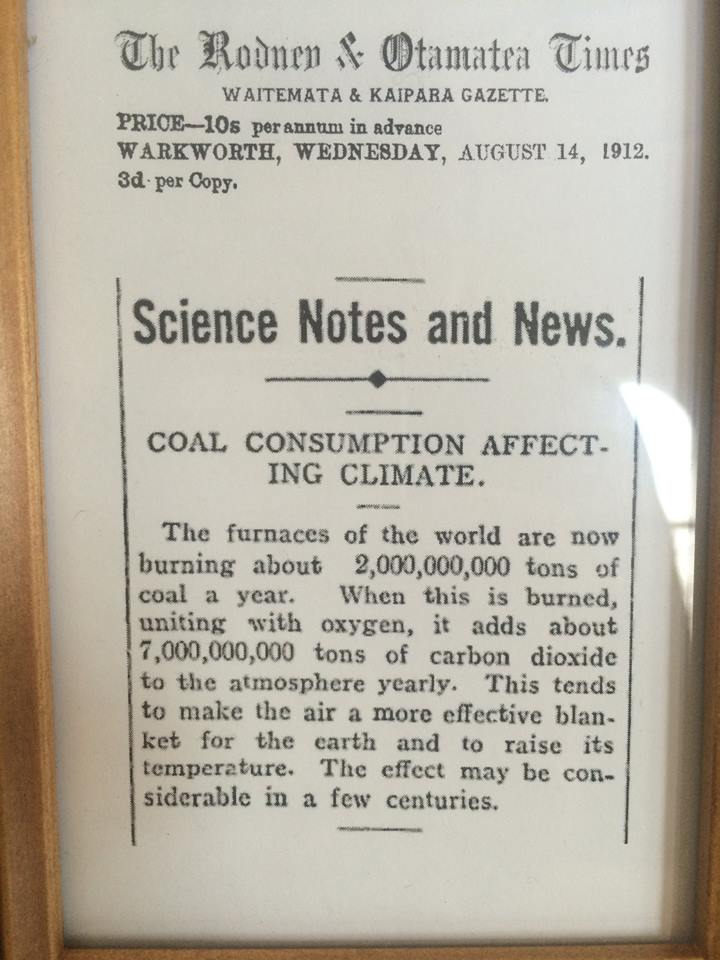
edit on 21Thu, 08 Jun 2017 21:35:59 -0500America/ChicagovAmerica/Chicago6 by Greven because: (no reason given)
a reply to: network dude
In the OP it is stated that out of 12k+ papers only 65 "explicitly endorses and quantifies AGW as >50%".
This number is then used to "prove" that scientific consensus is only at .5%
Which is absolute total bs. Not only does is NOT matter to what degree they endorse and quantify, out of the 12K+ papers 8269 don't even take a position on the cause of global warming.
In the OP it is stated that out of 12k+ papers only 65 "explicitly endorses and quantifies AGW as >50%".
This number is then used to "prove" that scientific consensus is only at .5%
Which is absolute total bs. Not only does is NOT matter to what degree they endorse and quantify, out of the 12K+ papers 8269 don't even take a position on the cause of global warming.
edit on 9-6-2017 by Jubei42 because: typo
edit on 9-6-2017 by Jubei42 because: more typo
And before you start asking why 8.2k papers out 12k don't take a position on the cause of global warming, which must be because they don't want to
know the answer, let the Cook report enlighten you.
4. Discussion
Of note is the large proportion of abstracts that state no position on AGW. This result is expected in consensus situations where scientists '...generally focus their discussions on questions that are still disputed or unanswered rather than on matters about which everyone agrees' (Oreskes 2007, p 72). This explanation is also consistent with a description of consensus as a 'spiral trajectory' in which 'initially intense contestation generates rapid settlement and induces a spiral of new questions' (Shwed and Bearman 2010); the fundamental science of AGW is no longer controversial among the publishing science community and the remaining debate in the field has moved to other topics. This is supported by the fact that more than half of the self-rated endorsement papers did not express a position on AGW in their abstracts.
The self-ratings by the papers' authors provide insight into the nature of the scientific consensus amongst publishing scientists. For both self-ratings and our abstract ratings, the percentage of endorsements among papers expressing a position on AGW marginally increased over time, consistent with Bray (2010) in finding a strengthening consensus.
edit on 9-6-2017 by Jubei42 because: (no reason given)
a reply to: D8Tee
So let me get this straight, you claim Cooks research is ficticious yet you have no problem using the same paper and it's data to create some consensus of your own?
Who do you think you're fooling here? Either you can prove, in a sound and scientific manner, that the 97% consensus among scientist agreeing on AGW is not correct or you can't.
So let me get this straight, you claim Cooks research is ficticious yet you have no problem using the same paper and it's data to create some consensus of your own?
Who do you think you're fooling here? Either you can prove, in a sound and scientific manner, that the 97% consensus among scientist agreeing on AGW is not correct or you can't.
a reply to: D8Tee
Yeah. Its so nausiating. They do realize that even truck drivers and bakers read now a days right?
One look at the counter argument against the cook analysis shows its based on typical statistics fudging.
Its not even a new concept. Again, who the hell thinks you can just throw statistics around like it was the 1950s and people will just accept it?
Oh we so dumb. Der dee der. Man in suit say der dee der. On the TV ya know, so its true. Live even.
Yeah. Its so nausiating. They do realize that even truck drivers and bakers read now a days right?
One look at the counter argument against the cook analysis shows its based on typical statistics fudging.
Its not even a new concept. Again, who the hell thinks you can just throw statistics around like it was the 1950s and people will just accept it?
Oh we so dumb. Der dee der. Man in suit say der dee der. On the TV ya know, so its true. Live even.
edit on 6 9 2017 by tadaman because: (no reason given)
originally posted by: TheConstruKctionofLight
a reply to: Greven
1912? Before World War 1? What is the point of your post?
There is no debate about CO2 causing warming (technically redistributing heat nearer to the surface), and this has been settled for well over a century.
edit on 19Fri, 09 Jun 2017 19:26:30 -0500America/ChicagovAmerica/Chicago6 by Greven because: (no reason given)
a reply to: D8Tee
Perhaps you've forgotten about our inadvertent geoengineering projects.
As to warming... UAH 6.0 says +0.12 degrees Celsius/decade from May 1999 - May 2017 (18 years).
That's quite significant, and if you don't think so, then you don't understand the relatively small range in global temperature at which life has existed.
If you are asserting that CO2 does not cause warming, you are disinterested in reality.
Perhaps you've forgotten about our inadvertent geoengineering projects.
As to warming... UAH 6.0 says +0.12 degrees Celsius/decade from May 1999 - May 2017 (18 years).
That's quite significant, and if you don't think so, then you don't understand the relatively small range in global temperature at which life has existed.
If you are asserting that CO2 does not cause warming, you are disinterested in reality.
a reply to: Greven
If we sum the rejection categories 5-7 together, there were 78 articles rejecting AGW, versus only 64 explicitly supporting the consensus. So another defensible headline finding is: "More articles implicitly or explicitly reject AGW than claim more than half of AGW is anthropogenic."
Can you explain why?
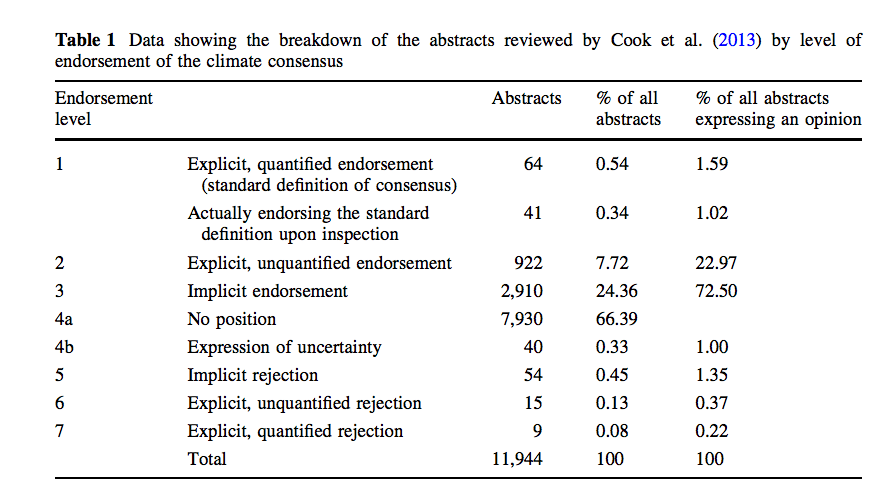
If we sum the rejection categories 5-7 together, there were 78 articles rejecting AGW, versus only 64 explicitly supporting the consensus. So another defensible headline finding is: "More articles implicitly or explicitly reject AGW than claim more than half of AGW is anthropogenic."
Can you explain why?

edit on 9-6-2017 by D8Tee because: (no reason given)
edit on 9-6-2017 by D8Tee because: (no reason
given)
new topics
-
Paramilitary Leaks - John Williams
Whistle Blowers and Leaked Documents: 6 hours ago -
Some sausage, some chicken, some sauce, some onions and some garlic...and some peppers!
Food and Cooking: 7 hours ago -
Hearing more ambulances lately
Medical Issues & Conspiracies: 8 hours ago -
Los Angeles brush fires latest: 2 blazes threaten structures, prompt evacuations
Mainstream News: 8 hours ago -
House Passes Laken Riley Act
Mainstream News: 9 hours ago -
The more I think about it
General Chit Chat: 9 hours ago -
What Comes After January 20th
Mainstream News: 11 hours ago -
Canada as a state .. how would it work?
General Chit Chat: 11 hours ago
top topics
-
House Passes Laken Riley Act
Mainstream News: 9 hours ago, 23 flags -
What Comes After January 20th
Mainstream News: 11 hours ago, 18 flags -
Claim: General Mark Milley Approved Heat and Sound Directed Energy Weapons During 2020 Riots
Whistle Blowers and Leaked Documents: 17 hours ago, 12 flags -
Planned Civil War In Britain May Be Triggered Soon
Social Issues and Civil Unrest: 16 hours ago, 7 flags -
Let's Buy Greenland
General Chit Chat: 13 hours ago, 6 flags -
Los Angeles brush fires latest: 2 blazes threaten structures, prompt evacuations
Mainstream News: 8 hours ago, 6 flags -
Those stupid GRAVITE commercials
Rant: 12 hours ago, 5 flags -
Hearing more ambulances lately
Medical Issues & Conspiracies: 8 hours ago, 5 flags -
The more I think about it
General Chit Chat: 9 hours ago, 4 flags -
Canada as a state .. how would it work?
General Chit Chat: 11 hours ago, 4 flags
active topics
-
-@TH3WH17ERABB17- -Q- ---TIME TO SHOW THE WORLD--- -Part- --44--
Dissecting Disinformation • 3966 • : RelSciHistItSufi -
House Passes Laken Riley Act
Mainstream News • 16 • : KrustyKrab -
Planned Civil War In Britain May Be Triggered Soon
Social Issues and Civil Unrest • 16 • : Freeborn -
Los Angeles brush fires latest: 2 blazes threaten structures, prompt evacuations
Mainstream News • 12 • : Mantiss2021 -
Judge rules president-elect Donald Trump must be sentenced in 'hush money' trial
US Political Madness • 60 • : WeMustCare -
Inca stone masonry at Sacsayhuaman, Ollantaytambo and the Sun Temple
Ancient & Lost Civilizations • 23 • : Hansllune -
Paradox of Progress
Ancient & Lost Civilizations • 14 • : Hansllune -
Let's talk planes.
General Chit Chat • 10 • : Dalamax -
Paramilitary Leaks - John Williams
Whistle Blowers and Leaked Documents • 8 • : caterpillage -
Claim: General Mark Milley Approved Heat and Sound Directed Energy Weapons During 2020 Riots
Whistle Blowers and Leaked Documents • 25 • : NoCorruptionAllowed

